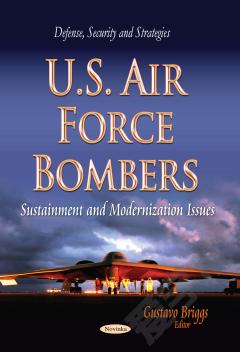Unmanned Aerial Systems and Military Airships: The Rise of U.S. Drones and Blimps
Unmanned aerial systems (UAS) comprise a rapidly growing portion of the military budget, and have been a long-term interest of Congress. The use of UAS in conflicts such as Kosovo, Iraq and Afghanistan, and humanitarian relief operations such as Haiti, revealed the advantages and disadvantages provided by unmanned aircraft. Long considered experimental in military operations, UAS are now making national headlines as they are used in ways normally reserved for manned aircraft. Conventional wisdom states that UAS offer two main advantages over manned aircraft: they are considered more cost-effective, and they minimize the risk to a pilot's life. This book examines Congressional considerations of the proper pace, scope and management of DOD UAS procurement; investment priorities for UAS versus manned aircraft; UAS future roles and applications; legal, personnel and industrial base issues; and technology proliferation.
{{comment.content}}








 京公网安备 11010802027623号
京公网安备 11010802027623号